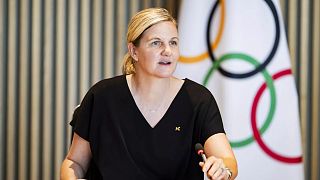Zimbabwe
In Zimbabwe’s arid regions, farmers like Gertrude Siduna and Muchaneta Mutowa are embracing climate-smart agriculture initiatives to adapt to challenging environmental conditions. Through training funded by the U.S. Agency for International Development (USAID), they’ve discovered crops and technology suited to Zimbabwe’s changing climate.
Siduna, a 49-year-old farmer from Chipinge district, now cultivates chilies instead of the traditional corn. For Siduna, this switch has transformed her livelihood. “I just pick it from the fields and take it to the Cargill processing center close to my home,” she explains. “It’s simple, I get my money, which I then use to buy cornmeal... Chilies are far much better than corn.” With her first year of harvest, Siduna has earned approximately $400, offering financial stability in a region where drought frequently endangers traditional crops.
Muchaneta Mutowa has also benefited from these initiatives, particularly through access to solar-powered water technology. This innovation has brought reliable water supplies to her village, reducing the need to fetch water from distant, dry riverbeds. “The solar technology has been quite helpful,” she says. “We now have easy access to reliable water that flows from the taps. We don’t pay for the sun... but it has now become a game changer.”
In Chiredzi, another farmer, Kenias Chikamhi, views growing traditional corn as increasingly unsustainable, often calling it "a gamble" due to recurring droughts. Crops like millet, which can withstand arid conditions, have become viable alternatives for farmers under USAID-supported programs.
Across Zimbabwe, community gardens with solar-powered irrigation are yielding essential crops like onions, leafy greens, and cowpeas. These gardens not only nourish families but also help fund basic needs, such as school fees, through vegetable sales.
However, as the need for food assistance grows, USAID and other aid agencies aim to improve their approach to global food security. Following a review by the U.S. Government Accountability Office (GAO), USAID has addressed recommendations to better measure its program outcomes. The final recommendations are expected to be resolved in October, with the release of the latest Global Food Security Strategy Implementation Plan.
.













01:22
World will have to learn to live with heatwaves, UN says
01:15
Morocco says 2024 was the hottest year with temperatures reaching 47.7 degrees
01:30
Abu Dhabi hosts first Global South Economic Forum
02:08
Gunman attack in north-central Nigeria: death toll climbs to 150
11:14
Rwanda Walks Away: what’s behind the Central Africa rift? [Business Africa]
01:10
China to remove tariffs on goods from all African countries